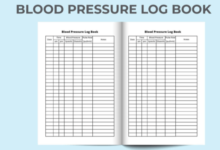Breaking the Chains of Substance Dependence: How Ibogaine Treatment Offers Hope

The journey of overcoming dependence is fraught with challenges, setbacks, and, at times, deep despair. However, amidst the conventional treatments of detoxification, therapy, and support groups, there lies an unconventional beacon of hope: ibogaine treatment. Originating from the root bark of the African iboga tree, ibogaine is a psychoactive compound that has shown promising results in treating substance use, particularly opioids, alcohol, and stimulants.
This blog explores the potential of ibogaine treatment as a revolutionary approach to breaking the chains of dependence.
Understanding Ibogaine
Ibogaine is a naturally occurring psychoactive substance found in the Taberna the iboga plant in West Africa. Traditionally used in spiritual ceremonies by the Bwiti religion in Gabon, it has gained attention in the Western world for its potential to alleviate withdrawal symptoms and reduce cravings.
The Science Behind the Hope
The efficacy of ibogaine lies in its unique ability to interact with various neurotransmitter systems simultaneously. It primarily acts on the serotonin, dopamine, and opioid receptors, which are significantly affected by substance dependence. By resetting these neural pathways, ibogaine offers a chance for individuals to break free from the cycle of dependence without experiencing the intense withdrawal symptoms that often lead to relapse.
Personal Journeys of Transformation
Numerous anecdotal reports and a growing body of research suggest that a single ibogaine treatment can significantly reduce or even eliminate withdrawal symptoms and cravings. Individuals who have undergone treatment often describe experiencing a profound psychological journey that provides insights into the root causes of their issue, facilitating deep emotional healing.
Navigating the Risks and Challenges
While ibogaine treatment offers hope, it’s not without its risks. The substance can cause significant cardiovascular effects, making it essential for treatment to occur under medical supervision in a facility equipped to handle potential emergencies. Moreover, ibogaine’s legal status varies globally, with it being classified as a Schedule I controlled substance in the United States, thereby limiting its accessibility and research.
The Path to Legalization and Access
The legal barriers to ibogaine treatment have spurred advocacy and research efforts aimed at understanding its risks and benefits better. Countries like Mexico, Canada, and several in the Caribbean, where ibogaine is legal or unregulated, have become destinations for those seeking treatment. Advocates argue for regulated, scientific research to pave the way for safe and legal access to ibogaine therapy, potentially transforming dependence treatment worldwide.
A Call for Comprehensive Care
For ibogaine treatment to be genuinely effective, it must be part of a comprehensive care plan that includes psychological support and aftercare. The profound experiences induced by ibogaine can unearth deep-seated emotional issues and traumas, necessitating professional support to process and integrate these insights into meaningful change. Aftercare services play a critical role in helping individuals build a supportive network, develop coping strategies, and make lifestyle changes that sustain recovery.
The Future of Dependence Treatment
As we stand on the cusp of a potential paradigm shift in treatment, the promise of ibogaine offers a glimmer of hope to those trapped in the cycle of substance dependence. However, for this promise to be fully realized, it requires a collective effort from researchers, policymakers, and the medical community to navigate the legal, ethical, and medical challenges that lie ahead.
The Role of Community in Recovery
An often overlooked but crucial aspect of overcoming substance is the support from a community, whether it’s through family or friends who have shared similar paths. Ibogaine treatment, while a powerful tool in the battle against dependence, is just the beginning of a lifelong journey of recovery. The integration phase after treatment emphasizes the importance of a supportive and understanding community. This network provides not only emotional support but also accountability and encouragement for continued growth and healing.
Recovery communities, both online and in person, can offer invaluable resources, experiences, and companionship to navigate the complexities of life post-dependence. They serve as a reminder that one is not alone in their struggles and that the journey towards healing is a shared experience. Embracing this sense of community can significantly enhance the effectiveness of ibogaine treatment, ensuring that the insights gained during the experience translate into lasting change. The collective wisdom, strength, and compassion found within these communities can be the cornerstone of a new, fulfilling life.
Conclusion
Ibogaine treatment represents a radical departure from traditional therapies, offering a holistic approach that addresses the psychological, emotional, and physiological facets of dependence. By providing a pathway to understand and heal the underlying causes, ibogaine treatment holds the potential to transform lives and offer individuals a chance to break free from the chains of dependence. As we move forward, it is imperative that we continue to explore, research, and advocate for treatments that offer hope and healing to those in need.






